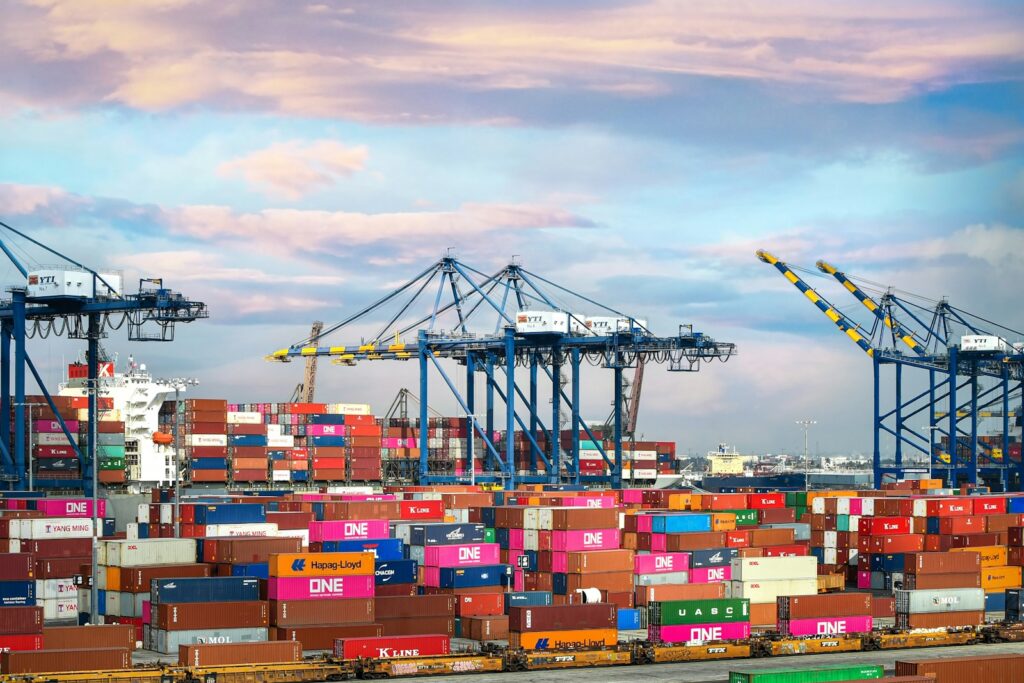The "appel en garantie" is a powerful procedural tool, making it possible to bring a third party into a lawsuit so that it will bear any penalties that may be imposed. Although a fundamental tool in civil and commercial litigation, its relationship with mechanisms such as joint and several liability or arbitration reveals complexities that are often little understood. This article, updated in 2024, provides an overview of its fundamentals, before exploring the more specific aspects that are essential for securing a party's interests and optimising its legal strategy in France.
Definition: the concept of guarantee and its procedural implications
In law, the term "guarantee" covers a number of different realities. In procedural terms, it is used either as a principal claim, where the creditor has summoned the guarantor directly, or as an incidental claim, within proceedings that have already begun. It is in the latter case that we speak of a guarantee call, a form of forced intervention defined by article 331 of the Code of Civil Procedure (CPC), the purpose of which is to make a third party a party to the proceedings.
The purpose of this procedure is to obtain an order from a third party who is legally or contractually obliged to guarantee a party against a possible future conviction. Article 334 of the same code (current version) distinguishes between two systems: the simple guarantee and the formal guarantee, which have significantly different effects on the court decision.
It is important not to confuse the "appel en garantie" with similar actions. It differs from the direct action in insurance matters, provided for in article L.124-3 of the Insurance Code, which allows the victim to take direct action against the insurer of the person liable. It is also different from the joint and several debtor's action for payment a co-debtor who has paid the debt must wait until he has been sentenced before taking action against the others, whereas a guarantee call may be initiated preventively, as soon as the person called is personally obliged (Civ. 1re, 6 October 1998, pourvoi n°96-20.111, published in the Bulletin officiel).
Conditions of admissibility: a precise framework depending on the body concerned
The admissibility of a guarantee call depends on the stage of the proceedings and the court seised.
At first instance: a flexible framework based on a sufficient link
Before the courts of first instance, the admissibility of any incidental claim, including a warranty claim, is assessed with a degree of flexibility. Articles 70 and 325 of the Code of Civil Procedure (CPC) simply require that the claim "be linked to the original claims by a sufficient connection". The case law of the Court of Cassation considers that this condition, relating to the link of connexity, is not a matter of public policy, which means that the judge cannot raise its absence of his own motion (Chambre sociale, 23 November 1995, no. 92-14.887).
On appeal: a restrictive framework linked to the progress of the case
The principle of dual jurisdiction requires a stricter approach before the Court of Appeal. Article 555 of the Code of Civil Procedure (CPC, version in force since Decree no. 2019-1333 of 11 December 2019) limits forced interventions to cases where "the evolution of the dispute implies the involvement" of the third party. The Assemblée plénière of the Cour de cassation defines this development as "the revelation of a factual or legal circumstance, arising out of or subsequent to the judgment, that changes the legal facts of the dispute" (Ass. plén., 11 March 2005, pourvoi n°03-20.484). Mere mention of the case on appeal or knowledge of a fact from the first instance are not sufficient to characterise such a change, which underlines the need to anticipate this legal action as soon as possible.
Before the Cour de cassation: inadmissibility in principle
Article 327 of the Code of Civil Procedure (CPC) rules out any compulsory intervention before the Cour de cassation. Only voluntary interventions on an ancillary basis are allowed, confirming the role of this high court, which is to rule on the law and not to re-examine the facts when an appeal is lodged.
Procedural implementation: jurisdiction, time limits and formalities
Article 333 of the Code of Civil Procedure (CPC) introduces an extension of territorial jurisdiction: the court seised of the principal claim becomes competent to hear the third-party guarantee claim, without the third party being able to decline jurisdiction. However, this rule, which is a matter of special procedural law, does not apply to subject-matter jurisdiction or jurisdiction in an international context (European Union or other).
The warranty call may be initiated by a party or suggested by the judge, including the pre-trial judge (art. 332 and 786 of the CPC, applicable version). The application, which takes the form of a writ of guarantee, must be made before the close of the investigation in order to comply with the adversarial principle. Once lodged, it is considered to be a defence on the merits, rendering inadmissible any subsequent plea of lack of jurisdiction (art. 74 of the CPC). To allow the defendant to organise his defence, the judge may grant him time to call a guarantor; this is a dilatory plea, a form of procedural plea that must be raised in limine litis.
Legal effects: simple guarantee vs. formal guarantee
The consequences of a guarantee call depend on whether it is simple or formal, a key distinction in French law.
Under the simple guarantee system, the appellant remains the main party to the proceedings. The guarantor is only an added party, and there is no direct legal link between the original plaintiff and the guarantor. Judgment is given first against the guaranteed party and then against the guarantor. The guarantor can only appeal against the judgment in the main action if the judgment is prejudicial to him and he has presented defences on the merits against the original claimant.
The formal guarantee, which is rarer in practice, comes into play when the appellant is sued only as the holder of an asset (for example, in an action to reclaim an asset). The guarantor may then be substituted for the guaranteed party, who is dismissed if he so wishes and if the other parties do not object (art. 336 of the CPC). The judgment is then rendered directly against the guarantor but acquires the authority of res judicata with regard to the guaranteed party and remains enforceable against it.
Guarantee calls and co-obligated persons: the key role of solidarity
The relationship between guarantee calls and joint and several liability is a strategic issue, particularly in commercial law, where passive joint and several liability is a fundamental mechanism that is often invoked before the Commercial Court.
The presumption of passive joint and several liability as a basis for the action
Unlike civil law, commercial law establishes a presumption of passive joint and several liability between co-debtors of the same commercial debt. Based on a contra legem practice, this rule, which is constantly being established and applied, is designed to strengthen credit and provide security for the creditor, who can then claim the entire debt from any of his debtors. This presumption constitutes an autonomous basis for an action in warranty between co-obligors.
Recourse by the co-debtor against the other co-obligated parties
The co-debtor who has paid the debt in full (the solvens) has recourse against his co-obligors for the share of liability that each must bear, in accordance with article 1317 of the Civil Code (version in force since Decree no. 2016-131 of 10 February 2016). He may make a preventive guarantee call as soon as he is sued, without waiting to actually pay. The called guarantor (another co-debtor) may raise against the plaintiff the defences common to all debtors, as well as those that are personal to him, but not those that are purely personal to the debtor who calls him as guarantor.
Guarantee calls in arbitration: jurisdiction subject to conditions
The use of arbitration to settle commercial disputes profoundly alters the rules of jurisdiction and raises specific questions about the admissibility of a warranty claim.
Principle: the arbitration agreement cannot be enforced against the guarantor
The arbitration agreement, which provides for recourse to this form of private justice, binds only the parties who have signed it. By virtue of the relative effect of contracts (art. 1199 of the French Civil Code), a guarantor who is a third party to the initial contract containing the said agreement cannot have the jurisdiction of an arbitral tribunal imposed on him. In principle, no guarantee call is therefore possible in arbitration proceedings without the express agreement of the guarantor.
Exception: unanimous acceptance of arbitral jurisdiction
The voluntary or forced intervention of a guarantor in arbitration proceedings remains possible, but is subject to a very strict condition: the agreement of all the parties. Not only must the guarantor accept the jurisdiction of the arbitral tribunal, but all the original parties to the arbitration proceedings must also consent to its intervention. This unanimity requirement makes the use of guarantees in arbitration particularly difficult to implement in practice.
Relationship with prior mediation and conciliation
Many commercial contracts provide for compulsory prior mediation or conciliation before any legal action is taken. Failure to comply with such a provision may constitute a bar to the proceedings, and may even lead to the proceedings being declared null and void if the text so provides. However, unless expressly stipulated, this obligation does not generally apply to a warranty claim, which is an incidental action. The scope of these provisions must therefore be carefully analysed to avoid any inadmissibility.
Complex cases: focus on current account guarantees in insolvency proceedings
The situation of a guarantor guaranteeing the balance of a current account becomes particularly complex when the account holder, often a company or business, is the subject of collective proceedings (safeguard, reorganisation or judicial liquidation).
It is therefore essential to distinguish two obligations for the guarantor:
- The obligation to cover : it concerns debts arising before the judgment opening the collective proceedings. The guarantor is still obliged to guarantee the outstanding balance at that date.
- Settlement obligation : it refers to the final balance that will be determined when the account is closed. Remittances made to the account after the opening of the account are in principle deducted from the balance that the guarantor must guarantee, unless otherwise stipulated in the contract. The final loss for the guarantor can therefore be reduced.
The guarantor must be particularly vigilant and declare any claim as a liability in the insolvency proceedings within the legal time limit in order to preserve his rights and subsequent recourse against the principal debtor, with a view to obtaining compensation, even partial, for his loss.
Recent developments and strategic issues
The reform of civil procedure, with the creation of the tribunal judiciaire (which merges the former tribunal de grande instance and the tribunal d'instance) and the generalisation of provisional execution, has modernised the framework of the appel en garantie without altering its fundamental principles. Case law continues to define the contours of this mechanism, particularly in matters of insurance and restitution, and it should be noted that distinct rules may apply in administrative litigation, where administrative case law has developed its own solutions.
The choice between a main guarantee claim and a cross-indemnity claim requires a detailed analysis of the advantages and risks of each option. The complexity of this procedure, which must be initiated within a certain period of time, justifies a more detailed analysis. legal support from the earliest stages of litigation. For an in-depth analysis of your situation and full information, contact our team of lawyers.
Frequently asked questions
What is the presumption of joint and several liability in commercial matters?
This is a practice whereby, when a commitment is entered into by several commercial debtors, they are presumed to be jointly and severally liable for payment of the entire debt. The creditor may then claim full payment from any one of them, who then has recourse against the others.
Can a guarantor be forced to take part in an arbitration procedure?
No, in principle. As the guarantor is a third party to the arbitration agreement, it cannot be forced to participate. The guarantor's involvement is only possible with the agreement of the guarantor and all the other parties to the arbitration proceedings, which is crucial information that must be validated before taking such a step.
Is it possible to call in a guarantee on appeal?
Yes, but very restrictively. It is only admissible before the Court of Appeal if a "change in the dispute" (a new fact or legal factor that has arisen since the first judgment) makes it necessary to call the guarantor into question.
What is the difference between a surety's obligation to cover and its obligation to pay?
The obligation to cover commits the guarantor to the debts arising during the term of his undertaking. The settlement obligation concerns the payment of the final balance of the debt, after deduction of subsequent payments and discounts. Their constitution and scope are defined in the guarantee contract.
Does a prior conciliation clause prevent a guarantee claim?
In general, no. If such a provision is not complied with, it may render a principal action on the merits inadmissible, but it does not generally apply to an incidental claim such as an action in warranty, unless expressly stipulated in the contract. The application of this principle remains at the discretion of the judge.
What is the difference between a simple guarantee and a formal guarantee?
A simple guarantee leaves the guarantor as the main party to the proceedings. The formal guarantee, which is rarer and linked to the ownership of an asset, allows the guarantor to take the place of the guaranteed party, who can then be exonerated. Formal guarantees have more radical effects on the procedure.




